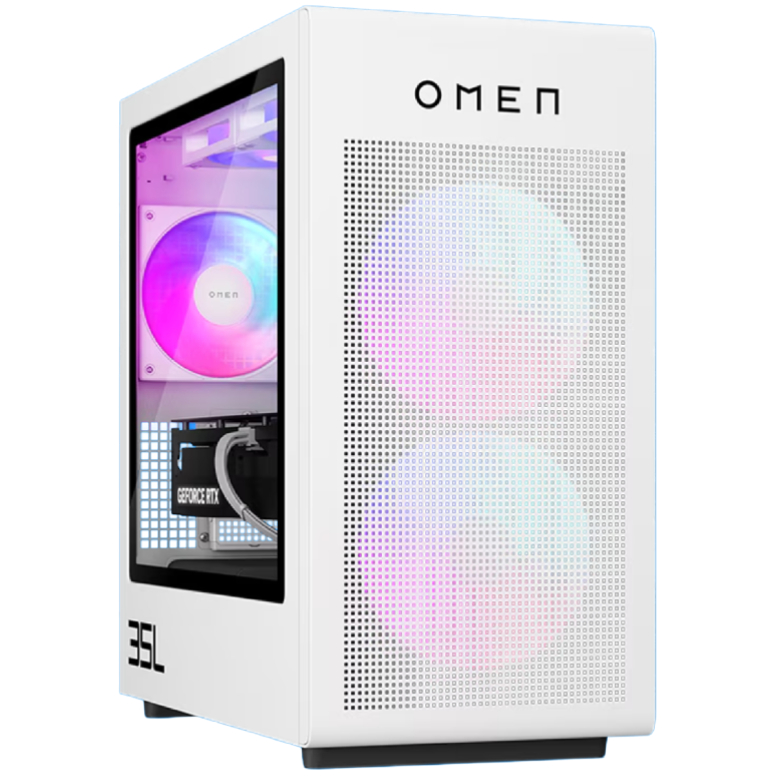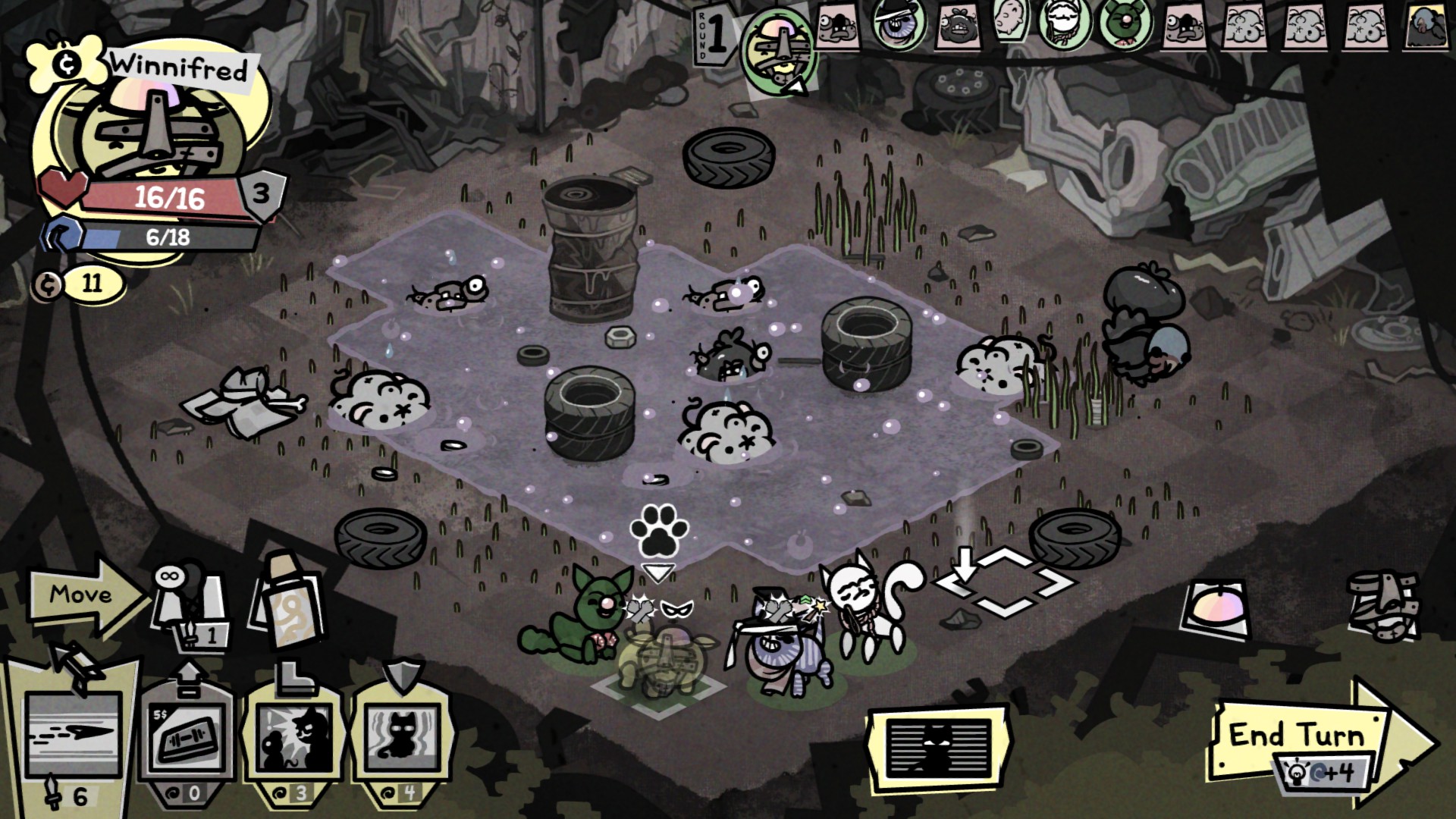Keep up to date with the most important stories and the best deals, as picked by the PC Gamer team.
You are now subscribed
Your newsletter sign-up was successful
Want to add more newsletters?

Every Friday
GamesRadar+
Your weekly update on everything you could ever want to know about the games you already love, games we know you're going to love in the near future, and tales from the communities that surround them.

Every Thursday
GTA 6 O'clock
Our special GTA 6 newsletter, with breaking news, insider info, and rumor analysis from the award-winning GTA 6 O'clock experts.

Every Friday
Knowledge
From the creators of Edge: A weekly videogame industry newsletter with analysis from expert writers, guidance from professionals, and insight into what's on the horizon.

Every Thursday
The Setup
Hardware nerds unite, sign up to our free tech newsletter for a weekly digest of the hottest new tech, the latest gadgets on the test bench, and much more.

Every Wednesday
Switch 2 Spotlight
Sign up to our new Switch 2 newsletter, where we bring you the latest talking points on Nintendo's new console each week, bring you up to date on the news, and recommend what games to play.

Every Saturday
The Watchlist
Subscribe for a weekly digest of the movie and TV news that matters, direct to your inbox. From first-look trailers, interviews, reviews and explainers, we've got you covered.

Once a month
SFX
Get sneak previews, exclusive competitions and details of special events each month!
Google DeepMind's Genie 3 model slipped right by me, as my time away and under my comfy rock last week saw me oblivious to the company's new AI 'world model'. So excuse me for the somewhat delayed reaction to this, but hoo boy, have we come far with generative AI. Though as Google DeepMind CEO Demis Hassabis reminds us, we're actually kind of coming around full circle with it—back towards gaming.
On the latest Google AI: Release Notes podcast episode, the AI exec says: "The advent of the thinking models is a little bit of a hark back to our original gaming work on things like AlphaGo and AlphaZero."
AlphaGo started around 2014 to use deep learning to try and compete in games of go, and this was later generalised to form AlphaZero, which used deep learning to try to improve at and compete in chess, shogi, and Go.
Hassabis explains that from these beginnings, DeepMind was always focused on "agent-based systems", i.e., "systems that can complete a whole task" rather than just doing one small thing. For instance, a whole task might be playing a game very well. "This," Hassabis thinks, "is obviously the way to get to AGI" (artificial general intelligence—AI that can match or beat humans at pretty much any task).
To give a specific example, Hassabis speaks about the company's Atari work, which was "our first, sort of, landmark result, [which] was the first real deep RL [reinforcement learning] system that could actually do something interesting and useful—in that case, play Atari games from the 1970s just from the pixels on the screen and be better than any human player, but importantly play any Atari game out of the box, so sort of generalised."
What if you could not only watch a generated video, but explore it too? 🌐Genie 3 is our groundbreaking world model that creates interactive, playable environments from a single text prompt.From photorealistic landscapes to fantasy realms, the possibilities are endless. 🧵 pic.twitter.com/P0cwFvf5d2August 5, 2025
Since these pre-AI boom days, there's been more of a focus on large language models (LLMs) without much of a focus on perfecting agent-based systems. But now—and for example with Google Gemini's Deep Think—we're seeing a focus on deep, reasoned, parallel thinking, and finally a shift back towards agent-based systems with gaming as a benchmark for the AI's 'intelligence'.
Which isn't to say it's exactly how it was before, because we didn't have AI playing inside the mind of another AI back then. And make no mistake, that's how Hassabis is conceptualising what's going on right now: "You've got basically one AI playing in the mind of another AI. It's pretty crazy to think about."
Keep up to date with the most important stories and the best deals, as picked by the PC Gamer team.
Here, he's referring to how the company is putting its game-playing AI agent SIMA inside Genie 3's creations. Genie 3, for those unaware like I was, Google explains as its "groundbreaking world model that creates interactive, playable environments from a single text prompt." So, it creates a realistic world based on your prompts, which you—or SIMA—can interact in/with.
The benefit of this is apparently that it can allow for unlimited training data, which might be useful for things like robotics or future interactive entertainment.

So, AI development has come back around to using gaming for training as well as using AI to create interactive environments that could become games of a sort. But in addition to this, DeepMind has partnered with Kaggle for Game Arena, "a new benchmarking platform where AI models and agents compete head-to-head in a variety of strategic games to help chart new frontiers for trustworthy AI evaluation." So, AIs will be going head-to-head with other AIs in the game arena to iterate and improve in games, the roster for which will be greatly expanding.
All this points towards—and this is, I think, partly what Hassabis is getting at—the AI industry realising the benefits of gaming for both AI use and AI training, just as it used to recognise before AI was on most people's lips.
The latter (training) reason is probably the more important one, but as a gamer, I am of course interested in the former. And it seems the DeepMind CEO is, too: "That's always my secret plan, is maybe, like, post-AGI, once that's done safely [and is] over the line, [to] you know, go back with these tools and make the greatest game ever. That would be a real dream come true."
That would be a fitting full circle. Though I'll leave the question of whether AI could make "the greatest game ever" open to the audience.

1. Best overall:
HP Omen 35L
2. Best budget:
Lenovo Legion Tower 5i
3. Best high-end:
Corsair Vengeance A7500
4. Best compact:
Velocity Micro Raptor ES40
5. Alienware:
Alienware Area-51
6. Best mini PC:
Minisforum AtomMan G7 PT

Jacob got his hands on a gaming PC for the first time when he was about 12 years old. He swiftly realised the local PC repair store had ripped him off with his build and vowed never to let another soul build his rig again. With this vow, Jacob the hardware junkie was born. Since then, Jacob's led a double-life as part-hardware geek, part-philosophy nerd, first working as a Hardware Writer for PCGamesN in 2020, then working towards a PhD in Philosophy for a few years while freelancing on the side for sites such as TechRadar, Pocket-lint, and yours truly, PC Gamer. Eventually, he gave up the ruthless mercenary life to join the world's #1 PC Gaming site full-time. It's definitely not an ego thing, he assures us.
You must confirm your public display name before commenting
Please logout and then login again, you will then be prompted to enter your display name.


